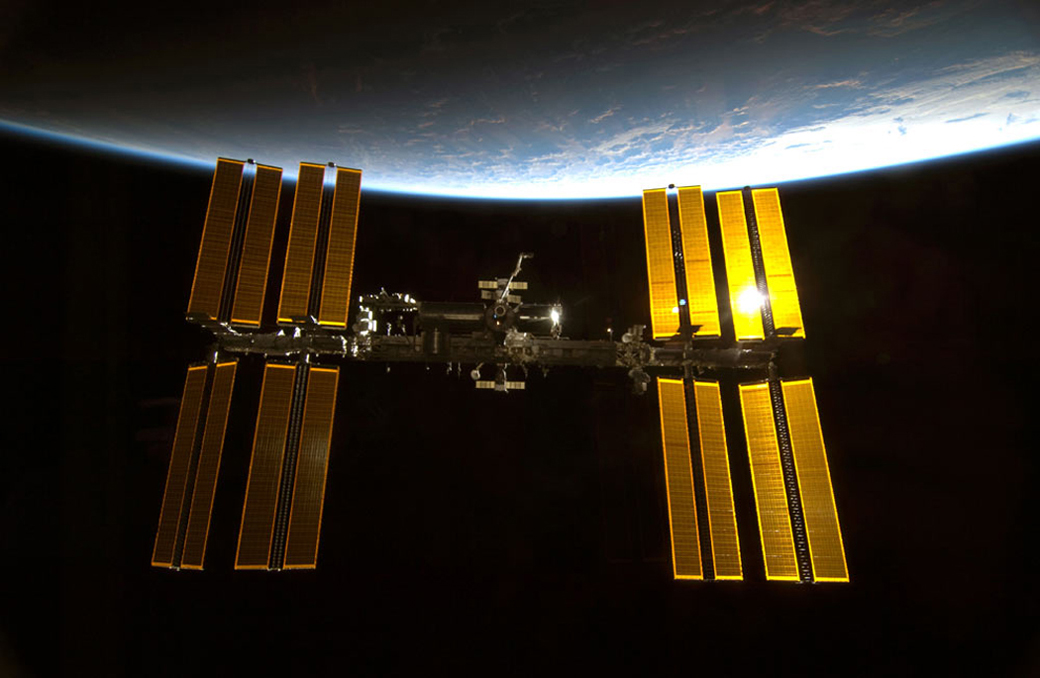Shuttle Discovery Closing in On Space Station for Saturday Arrival

HOUSTON – The space shuttle Discovery is closing in on the International Space Station to make one last delivery to the orbiting laboratory today (Feb. 26).
Shuttle commander Steve Lindsey is scheduled to dock Discovery at the orbiting laboratory at 2:16 p.m. EST (1916 GMT). The shuttle launched from NASA's Kennedy Space Center in Florida on Thursday (Feb. 24) on its final voyage into space.
Discovery and its six-astronaut crew are flying an 11-day mission to deliver supplies, spare parts, an extra storage module and a humanoid robot assistant to the International Space Station. Two spacewalks are also planned during the shuttle's week-long stay at the orbiting lab.
"Look who is coming to dinner! STS 133 is headed our way!" space station astronaut Cady Coleman, of NASA, wrote on Twitter after Discovery's Thursday launch. [Photos: Shuttle Discovery Launches on Final Voyage]
Discovery's astronaut crew will begin today's space rendezvous shortly after 8:30 a.m. EST (1330 GMT). This will be the 13th and last time Discovery docks at the space station, since the shuttle's STS-133 mission is its final flight before being retired from service.
One last engine burn conducted shortly after 11:30 a.m. EST (1630 GMT) will help the shuttle reach the station.
But before Discovery can park at the orbiting laboratory, Lindsey will fly the spacecraft through a slow back flip beneath the space station. This will allow astronauts inside the space station to snap high-resolution photographs of Discovery so that teams on the ground can check the health of Discovery's tile-covered belly, and whether any tiles need repair.
Get the Space.com Newsletter
Breaking space news, the latest updates on rocket launches, skywatching events and more!
This flip operation has been a part of every NASA shuttle flight since the loss of shuttle Columbia in 2003. Columbia and its seven-astronaut crew perished during re-entry into Earth's atmosphere because of heat shield damage on one of the orbiter's wings.
"For rendezvous, I do the manual phase where I take over the vehicle at about 2,000 feet away from space station, fly up to position underneath the space station, do something called an RPM, Rotational Pitch Maneuver, or R-bar Pitch Maneuver, which is basically is just a 360 [degree] back flip so that the space station crew can take pictures of our tiles and make sure they’re okay from a thermal protection systems standpoint," Lindsey said in a NASA interview before launch. "Then I’ll fly around the front of the vehicle and manually fly in to do the docking."
The space shuttle's pre-docking flip is one of three separate heat shield inspections built into every shuttle mission.
Yesterday, Discovery astronauts used an inspection boom and their shuttle's robotic arm to survey the heat shield panels along their spacecraft's wings and nose cap. A similar scan will be performed shortly after the shuttle undocks from the space station later in the mission.
NASA officials have said that, based on their initial look, Discovery's heat shield appears to be in good shape after its Thursday launch.
You can follow SPACE.com Staff Writer Denise Chow on Twitter @denisechow as she covers Discovery's final space voyage from NASA's Johnson Space Center in Houston. Visit SPACE.com for complete coverage of Discovery's final mission STS-133.
Join our Space Forums to keep talking space on the latest missions, night sky and more! And if you have a news tip, correction or comment, let us know at: community@space.com.

Denise Chow is a former Space.com staff writer who then worked as assistant managing editor at Live Science before moving to NBC News as a science reporter, where she focuses on general science and climate change. She spent two years with Space.com, writing about rocket launches and covering NASA's final three space shuttle missions, before joining the Live Science team in 2013. A Canadian transplant, Denise has a bachelor's degree from the University of Toronto, and a master's degree in journalism from New York University. At NBC News, Denise covers general science and climate change.









